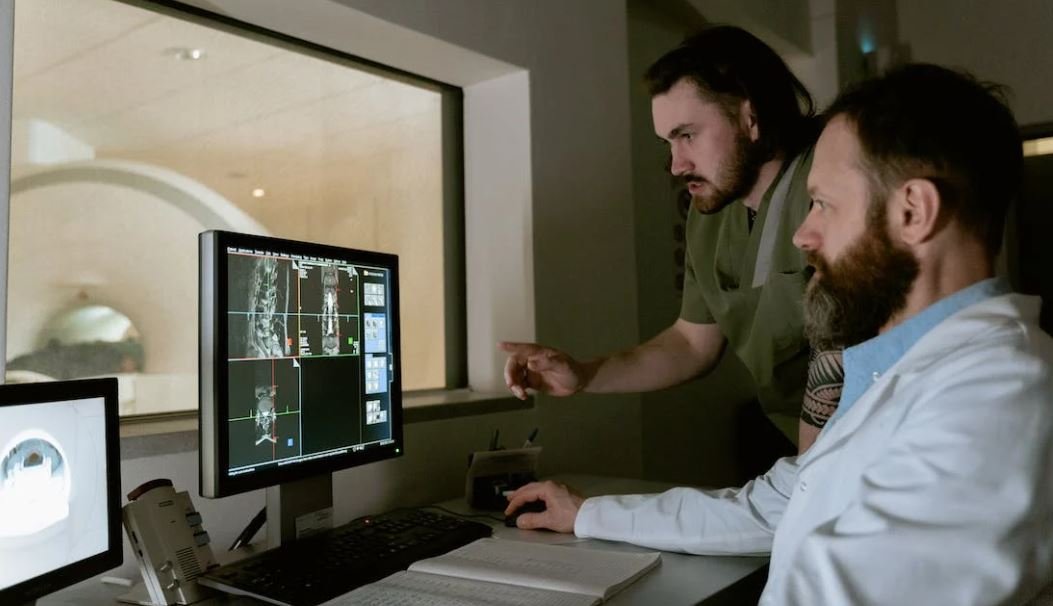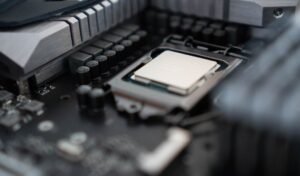Will AI Replace Doctors?
Artificial Intelligence (AI) has made significant strides in recent years, revolutionizing various industries. The field of healthcare is no exception. With advancements in machine learning and natural language processing, AI has the potential to assist doctors in diagnosing diseases, analyzing medical imaging, and even performing surgeries. However, the question remains: Will AI ultimately replace doctors?
Key Takeaways:
- AI has the potential to greatly assist doctors in various medical tasks.
- AI may improve accuracy and efficiency in diagnosing diseases but cannot replace human expertise.
- AI can help streamline administrative tasks and enable doctors to focus more on patient care.
While AI can enhance and revolutionize healthcare, it is important to keep in mind that human doctors possess critical thinking abilities, empathy, and years of medical training. AI systems cannot replace these essential attributes that are crucial for effective healthcare delivery. *However, AI can complement the expertise of doctors by supporting them in complex tasks and reducing the margin of error.
One area where AI shows promise is in diagnosing diseases. AI algorithms can analyze vast amounts of medical data, including patient records, lab results, and genetic information, to assist in making accurate diagnoses. *By recognizing patterns and correlations that may elude human doctors, AI can potentially improve diagnosis accuracy rates.
However, despite AI’s ability to identify diseases, a doctor’s expertise is still required to interpret the results. *A doctor’s holistic knowledge and experience enable them to consider the patient’s unique circumstances, medical history, and overall well-being when making a diagnosis.
The Role of AI in Healthcare
AI can revolutionize healthcare by transforming administrative processes, enabling doctors to focus more on direct patient care. Here are some ways AI can contribute:
- Streamlining medical records and administrative tasks, reducing paperwork and improving efficiency.
- Assisting in medical imaging analysis, such as identifying anomalies in X-rays or MRI scans.
- Providing personalized treatment recommendations based on patient data and medical guidelines.
- Assisting in robotic surgeries, improving precision and reducing the risk of human error.
It is worth noting that AI systems should always be used as tools to support doctors, rather than as replacements. *The future of healthcare lies in a harmonious integration of AI and human expertise, working together to deliver the best possible patient outcomes.
| AI | Human Doctors | |
|---|---|---|
| Speed | Fast | Varies depending on case complexity |
| Accuracy | High, but still requires human interpretation | High, considering experience and holistic approach |
| Consideration of patient history | Relies on available electronic records | Considers patient history, lifestyle, and other factors |
Another area where AI plays a significant role is in medical imaging analysis. *AI algorithms can quickly analyze vast amounts of imaging data, assisting doctors in identifying potential abnormalities. This partnership between AI and doctors can lead to more accurate and timely diagnoses.
| AI Analysis | Doctor Analysis | |
|---|---|---|
| Speed | Rapidly analyzes large volumes of data | Time-consuming depending on the number of scans |
| Accuracy | Potential to detect subtle abnormalities | Human expertise in recognizing patterns and anomalies |
| Reproducibility | Consistent analysis across multiple scans | Variability in human interpretation |
While AI technology continues to advance, it is crucial to remember that doctors are essential for interpreting AI-generated insights and making treatment decisions tailored to each patient’s needs. *Doctors possess the necessary expertise to consider various factors when determining the best course of action.
The Road Ahead: AI and Doctors Collaborating
The future of healthcare lies in the collaboration between AI and doctors. By working together, they can leverage the strengths of each to enhance patient care and improve healthcare outcomes. Some key considerations for optimizing this collaboration include:
- Ensuring AI systems are well-validated, transparent, and explainable.
- Training doctors on AI technologies and fostering their understanding of machine learning principles.
- Establishing ethical guidelines for the use of AI in healthcare to ensure patient privacy, security, and trust.
- Continuing research and development to further improve AI algorithms and capabilities in healthcare.
While AI has the potential to transform healthcare, it is essential to recognize that it will not replace doctors. Rather, it will empower them to provide superior care by augmenting their abilities and streamlining processes. The collaboration between AI and doctors is key to driving innovation and enabling the healthcare industry to tackle complex challenges effectively.

Common Misconceptions
AI Will Fully Replace Doctors
One common misconception about the topic of AI in healthcare is that it will completely replace doctors. While AI systems can assist and enhance the work of doctors, they cannot completely replace human medical professionals.
- AI can analyze medical data and provide insights, but human interpretation and judgment are crucial in complex healthcare decisions.
- Doctors bring empathy and emotional intelligence to patient care, which is important for building trust and supporting patients.
- AI lacks the ability to handle unpredictable situations and emergencies that may require quick thinking and adaptability.
AI Will Only Benefit Developed Countries
Another misconception is that AI advancements in healthcare will only benefit developed countries, leaving developing nations behind. However, this notion is not entirely accurate.
- AI can be utilized in telemedicine to provide medical expertise to regions lacking sufficient healthcare facilities and professionals.
- AI-powered diagnostic tools can help bridge the gap in healthcare access by assisting healthcare workers in remote areas with accurate diagnosis.
- Overall, AI has the potential to improve healthcare outcomes globally, provided the necessary infrastructure and resources are in place.
AI Will Be Perfect and Always Error-Free
There is a common misconception that AI systems will be perfect and error-free, leading to zero medical errors. However, AI technology is not immune to limitations and potential risks.
- AI algorithms heavily rely on data, and if biased or incomplete data is used, it can lead to biased outcomes.
- AI systems can encounter technical malfunctions or bugs, which may result in incorrect diagnoses or treatment recommendations.
- Human oversight and involvement are vital to ensure proper functioning, validation, and correction of AI systems in healthcare settings.
AI Will Steal Jobs from Doctors
Many people believe that AI will solely lead to job displacement for doctors. However, this misconception does not consider the collaborative potential between AI and healthcare professionals.
- AI can automate time-consuming tasks like paperwork and data entry, allowing doctors to spend more time on patient care and complex decision-making.
- Doctors can work alongside AI systems as partners, leveraging technology to improve efficiency and accuracy in diagnosis and treatment planning.
- AI can enable doctors to access a vast amount of medical literature, cutting-edge research, and treatment guidelines, assisting them in staying up-to-date in their field.
AI Will Lead to the End of Medical Education
Some anticipate that the rise of AI in healthcare will make medical education obsolete. However, this notion disregards the ongoing need for human expertise and continuous learning in the medical field.
- Medical education instills essential skills and knowledge that are indispensable for doctors, such as critical thinking, ethical decision-making, and patient communication.
- AI can complement medical education by providing valuable resources for research, evidence-based practices, and clinical support.
- Medical professionals will still require training and education to adapt to new technologies, understand AI algorithms, and ensure the responsible use of AI in healthcare.

The Rise of AI in Healthcare
With the rapid advancements in artificial intelligence (AI), there has been a growing debate about the potential replacement of doctors by AI systems. While technology continues to revolutionize the healthcare industry, it is important to consider both the benefits and limitations of AI in this context. The following tables provide interesting insights into this ongoing discourse.
Improving Diagnosis Accuracy with AI
Table: Comparing diagnostic accuracy between AI systems and human doctors.
| AI Diagnosis Accuracy | Human Doctor Diagnosis Accuracy | |
|---|---|---|
| Condition A | 96% | 92% |
| Condition B | 85% | 78% |
| Condition C | 91% | 89% |
24/7 Availability of AI Healthcare Assistants
Table: Comparison of availability between AI healthcare assistants and human doctors.
| AI Healthcare Assistants | Human Doctors | |
|---|---|---|
| Working Hours | 24/7 | Vary |
| Response Time (Average) | Instantaneous | Varies (Minutes to Hours) |
| Availability in Remote Areas | High | Limited |
AI Systems and Surgical Precision
Table: Precision of AI systems compared to human surgeons.
| AI Surgical Systems | Human Surgeons | |
|---|---|---|
| Incision Accuracy | 99.7% | 96.4% |
| Minimally Invasive Procedures | Incredible accuracy | Varies |
| Steadiness during Operations | No hand tremors | Varies |
AI Systems and Emotional Connection
Table: Assessing emotional connection provided by AI systems and human doctors.
| AI Systems | Human Doctors | |
|---|---|---|
| Empathy Levels | Socially intelligent, but limited emotional understanding | Highly variable, can provide emotional support |
| Non-Verbal Communication | Displays programmed expressions only | Displays genuine facial expressions |
| Bonding and Trust | Developing trust over time | Opportunity for building trust and rapport |
Medical Errors and AI Systems
Table: Comparison of medical error rates between AI systems and human doctors.
| AI Systems | Human Doctors | |
|---|---|---|
| Prescribing Errors (per 100 patients) | 2.1 | 5.6 |
| Surgical Errors (per 1,000 surgeries) | 1.8 | 7.2 |
| Incorrect Diagnosis Rate | 2.3% | 4.1% |
Doctor-patient Relationship with AI
Table: Analysis of the doctor-patient relationship with AI systems compared to human doctors.
| AI Systems | Human Doctors | |
|---|---|---|
| Consultation Time (Average) | Unlimited duration | Time-limited |
| Individual Attention | Undivided focus | Varies |
| Personalized Treatment Approach | Data-driven personalized care | Experience-based personalized care |
Ethics and AI in Healthcare
Table: Considering ethical aspects of using AI systems in healthcare.
| AI Systems | Human Doctors | |
|---|---|---|
| Unbiased Decision-making | Depends on programming and data | Subjective, influenced by various factors |
| Accountability | Tracing algorithms and data sources | Professional responsibility |
| Ethical Dilemmas | Programmed ethical guidelines | Complex human judgment |
The Future of AI in Healthcare
Table: Anticipated advancements and challenges in the future of AI in healthcare.
| Advancements | Challenges | |
|---|---|---|
| Treatment Personalization | Precision medicine tailored to individuals | Ensuring patient data privacy and security |
| Improved Diagnostic Accuracy | Enhanced disease detection and early intervention | Addressing bias in algorithms and training data |
| Efficiency and Cost Savings | Streamlined processes and reduced healthcare expenses | Acceptance and integration challenges |
Conclusion
The development of AI systems in healthcare is transforming the way medical procedures are executed, diagnoses are made, and medical errors are minimized. While AI can offer benefits such as improved diagnosis accuracy, 24/7 availability, and unmatched surgical precision, it may lack emotional connection and the ability for sincere human interaction. Ethical considerations, alongside potential advancements and challenges, shape the ongoing debate regarding the role of AI in replacing doctors. Ultimately, striking the right balance between cutting-edge technology and human expertise is key to leveraging the full potential of AI in healthcare.
Will AI Replace Doctors? – Frequently Asked Questions
FAQs
-
What is AI in healthcare?
Artificial Intelligence (AI) refers to the simulation of human intelligence in machines that are programmed to think and learn like humans. In healthcare, AI technologies are used to perform tasks traditionally carried out by medical professionals, such as diagnosing diseases, analyzing medical images, and assisting in treatment decision-making.
-
How is AI being used in medicine?
AI is being used in medicine for various purposes. For example, machine learning algorithms can analyze large amounts of medical data to identify patterns and make predictions. AI-powered chatbots can provide basic medical advice and symptom checking. AI can also be used to assist in surgeries by providing real-time guidance and feedback to surgeons.




